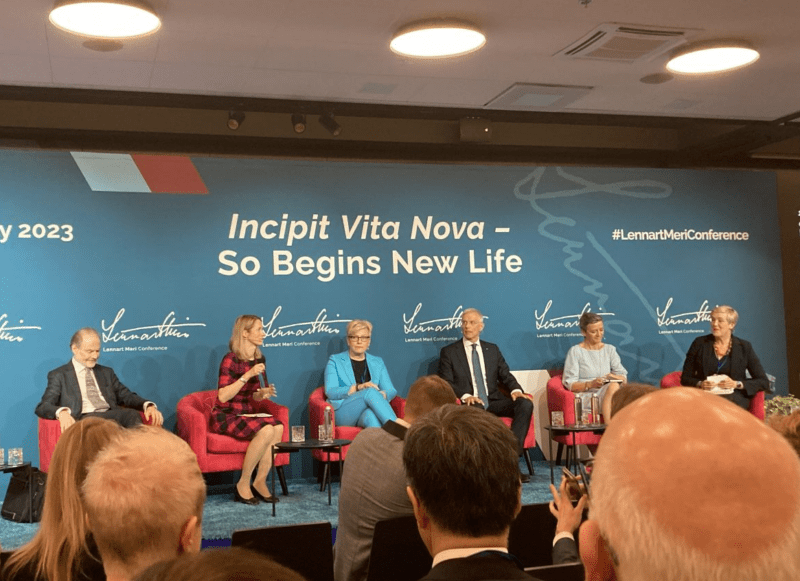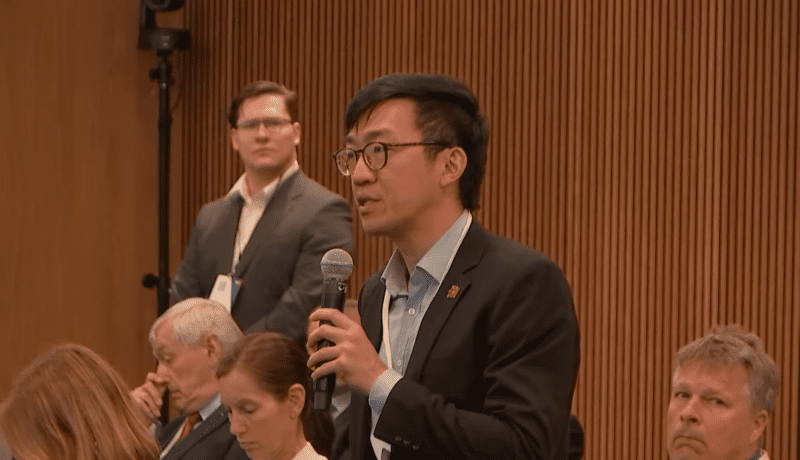
Hello! I’m Iverson, a Junior Research Fellow at Tallinn University. As my research focuses on Hong Kong’s international status and how the world interacts with China, I attended Lennart Meri Conference 2023, a Tallinn-based international conference on global foreign and security policy issues.
Border studies are not limited to traditional conflicts on hard borders or the question of the line of control. During 12-14 May, I was invited to attend Lennart Meri Conference which was attended by policymakers, analysts, politicians, military officials and academia from all over the world. While there was only one panel focusing on the Indo-Pacific region, there were explicit references on China and the Indo-Pacific region in general. In this blog, instead of summarizing all the arguments made by the speakers, I would draw more attention to how certain regions are being discursively constructed and how differences were highlighted in the discussions dominated by Russia’s full-scale invasion of Ukraine.
Global South-West
The diversity of panels has been impressive even though a significant number of speakers are from Europe and North America. In the discussion on anti-Americanism and the Middle East, it was interesting to see that most countries outside G7 was generalized as the ‘Global South’. Addressing the issue that the Global South did not follow the transatlantic alliance’s approach to isolate Russia, it was highlighted that the Global South continues to make a balancing act between the democratic alliance and the Sino-Russo nexus. Unlike the Western perception that the Global South was sliding with Russia and China due to economic and financial interests, some speakers expressed that some Middle East countries were actually pro-Western, but they somehow felt ‘abandoned’ by the Americans.
Western Europe-Central and Eastern Europe
Given that Estonia is the hosting country of this conference at the presence of high-level officials such as the Prime Minister, Foreign Minister and President, the clashing views and understanding between Western European countries and Central and Eastern European countries were obvious. In the bigger picture, speakers from most of the European countries tend to agree on how one should help Ukraine to achieve its decisive victory against Russia. On the other hand, speakers and officials from Central and Eastern European countries blasted the West, stating that it was a wrong decision not to allow Ukraine, Georgia and Moldova to join NATO after Bucharest Summit in 2008. For the Baltic States, many speakers echoed the notion that the Baltic States’ positions on Russia and EU enlargement should have been considered. It was indeed interesting to see how the Baltic States drew clear boundaries with Western European countries, even though they have joined the EU for almost two decades.
Ukraine-Russia
The discourse on Russia as a colonial power and Ukraine as a European defender cannot be clearer at this point. Throughout the conference, condemnation on Russian war crimes dominated the panels and Russia’s imperialism was called out by discussants. Ukraine, on the other hand, was identified as the protagonist of Europe which acts as the frontier for EU countries against Russian aggression on post-Soviet space. In addition to multiple calls for Ukraine’s accession to the EU and NATO, it was compared to Finland in terms of the Nordic state’s recent NATO membership, casting doubts on doubles standards towards Ukraine and Finland. As the war in Ukraine grinds on for the 15th month, the institutional boundaries between the post-2004 EU countries and the three Eastern Partnership countries have been omitted– all these countries were discursively constructed as the victims of Russian imperialism.

Sessions attended:
All Men Dream, But Not Equally: Prospects for the Middle East
Incipit Vita Nova– So Begins New Life
No Man Is Rich Enough to Buy Back His Past: Perceptions of the US
The Sea, the Sea: New Maritime Security Realities on NATO’s Eastern Flank
They Rise or Sink Together: NATO on the Road to Vilnius
Ukraine: What We Live For, What We Die For
Everything Can Change All of a Sudden: Security in Northern Europe
Lennart Meri Lecture
Clean Up the Mess: Energy Security in a Competitive World
The Sinews of War: Sanctions and Sanctions Busting